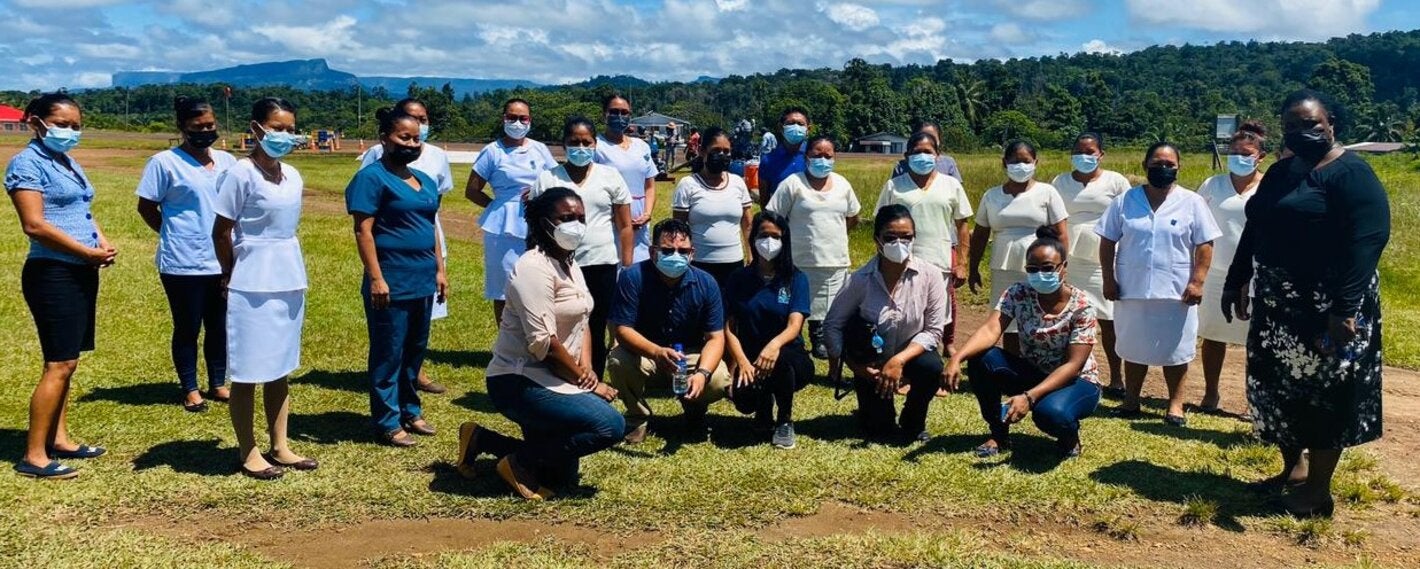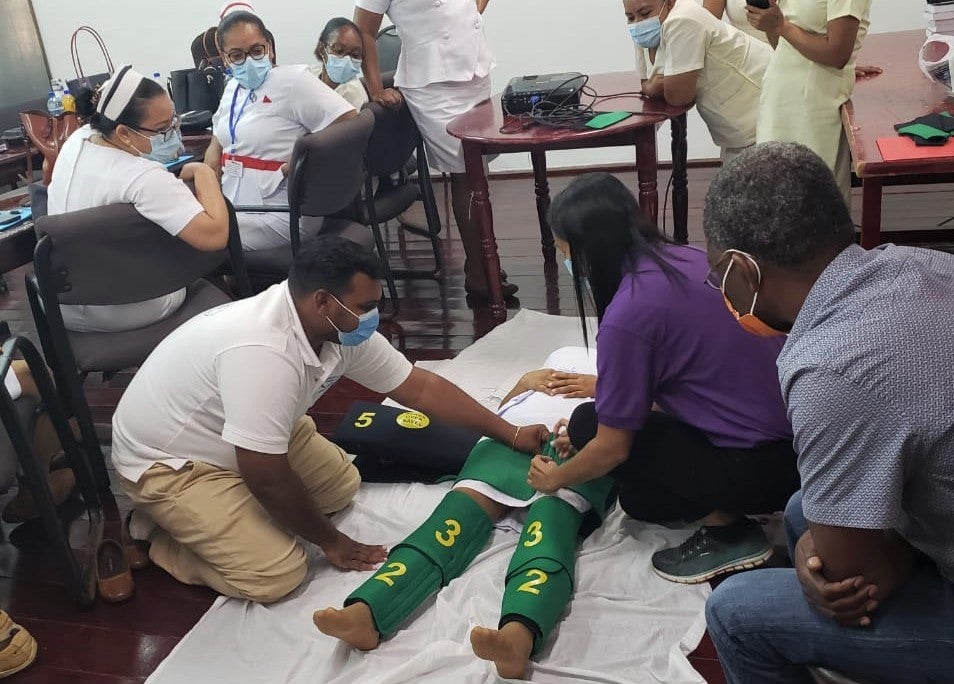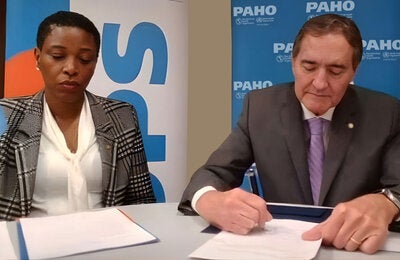
4 September 2020 - PAHO Guyana, in collaboration with the Ministries of Health and Local Government, conducted the first Mental Health Gap Action Programme (mhGAP) training for the indigenous health care workers providing care to remote, hinterland communities, exclusively to the indigenous populations in Kamarang and neighbouring communities in Guyana's hinterland. The trained health care workers, who were women, included community health workers, nursing assistants, and midwives who account for more than 90% of the health workforce providing care at the primary health care level in hard-to-reach communities in Guyana.
Recognizing the imperative to provide services for people with mental, neurological and substance use (MNS) disorders in remote communities and bridge the gap between available resources and the large need for mental health services, the PAHO Guyana country office, over the last five years, has been collaborating with the Ministry of Health to:
- Strengthen advocacy, effective leadership and governance for mental health, neurological and substance use disorders;
- Provide comprehensive, integrated and responsive mental health and social care services in community-based settings for early recognition and evidence-based management of childhood mental disorders;
- Implement strategies for the promotion of psychosocial well-being, prevention of mental disorders and promotion of human rights of people with mental illnesses and;
- Strengthen information systems, evidence, and research.
The Mental Health Global Action Programme -Intervention Guide (mhGAP-IG) was adapted to Guyana's unique local situation. To date, approximately 440 health care professionals in the country have been trained in the use of this intervention guide. The mhGAP intervention will continue to be a key technical tool to deliver care for people with MNS disorders in Guyana, leading us closer to achieving the goal of Universal Health Coverage.
The training methods included explanatory flowcharts, quizzes, games, self-assessment tests, and role-plays in the participants native dialects. As part of the plans for the new biennium 2022-23, PAHO will continue capacity building activities for improved metal health outcomes at the community level with a focus on indigenous and hard to reach communities.
As part of the workshop, the Family and Community Health Units also collaborated with the Mental Health Unit of the Ministry of Health to conduct a combined health workshop. Nineteen (19) participants from the subdistricts of Kamarang, Jawalla, Phillipi, Wax Creek, Imbamadai, Quebnang, Wayalayeng, Pariuma, Kako, and Chinoweing Village.
Over about 50% of the health workers have taken the COVID-19 vaccine from the ten districts. They were encouraged to be vaccinated to stop the spread of the pandemic.
During the sensitization sessions, Healthcare workers (HCW) raised the issues of lack of EPI Manual, not enough information on COVID-19 vaccines, lack of Personal Protective Equipment (PPEs) to fight the COVID-19 pandemic, and the lack of health education materials. These are challenges faced by HCW in the regions.
The facilitator evaluated the MCH workers on the correct use of the Non-Pneumatic Anti Shock Garment (NASG), specifically regarding placement, removal, and storage of the NASG. The facilitator reviewed the basic concepts on Post-Partum Hemorrhage. The MCH workers mentioned that since acquiring the suit, they did not have any patient with Post-Partum Haemorrhage that required the use of the garment.
The use of condom tamponade was taught as part of the Zero Maternal Death from hemorrhage training in Kamarang in 2018.
Participants were evaluated during the practical session to demonstrate the correct placement and use of this intervention
At the end of the training session, the frontline workers and pregnant women were presented with 50 care packages to reduce COVID-19 transmission in this remote area. PAHO MCH Unit donated the Medical Eligibility Criteria (MEC) wheels and family planning manuals to the MoH/MCH for distribution to the ten facilities that offer family planning services.
Efforts will be put in place to transport needed educational materials and other supplies for the HCW to continue their duties and provide the services required by the population.
PAHO Guyana will continue to provide the technical support needed to the Ministry of Health in the fight against COVID-19.




